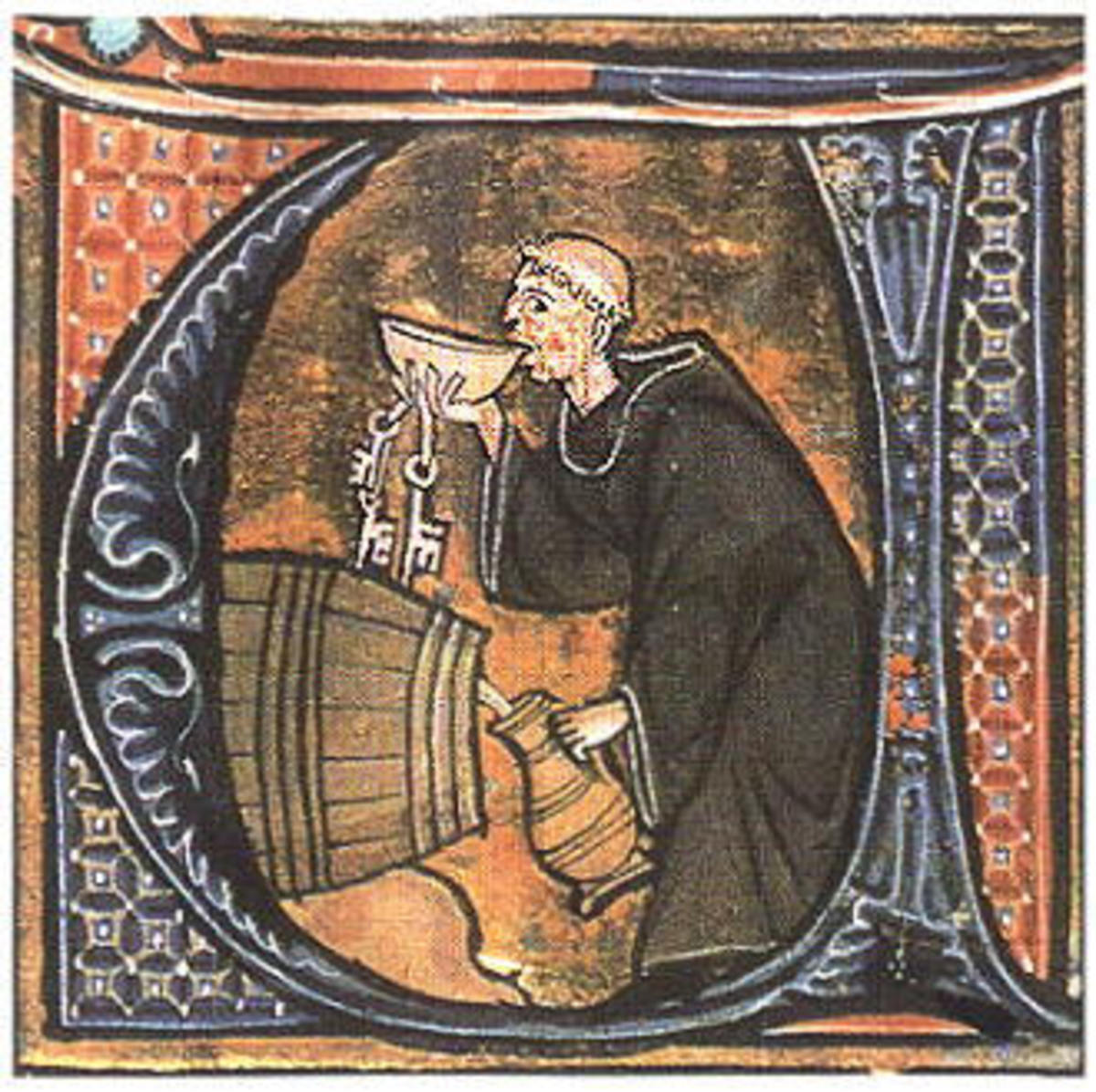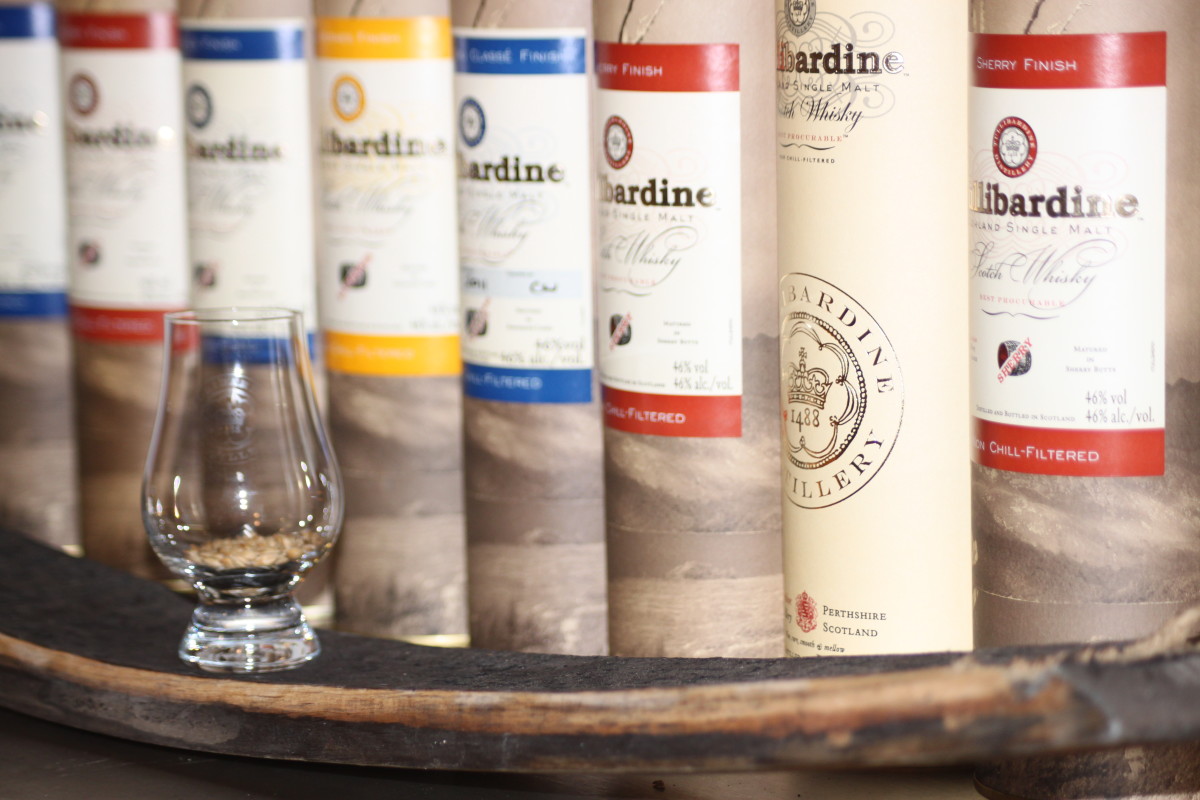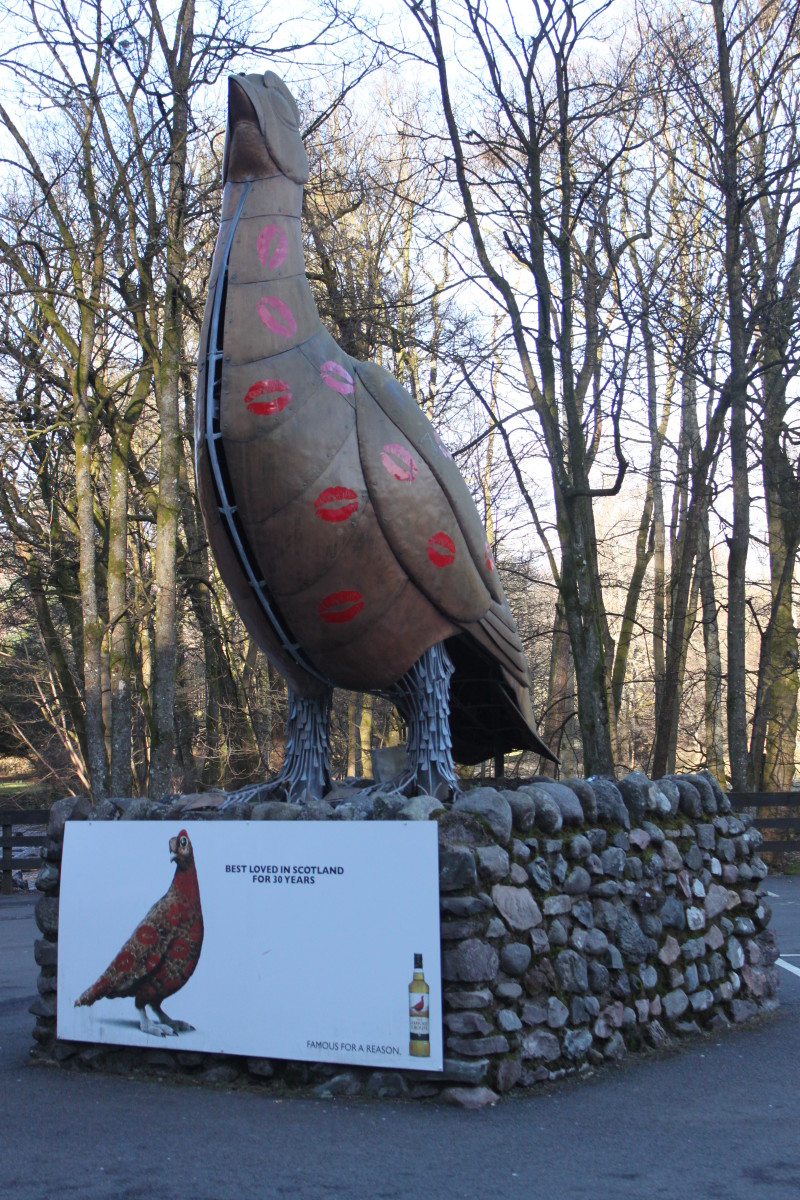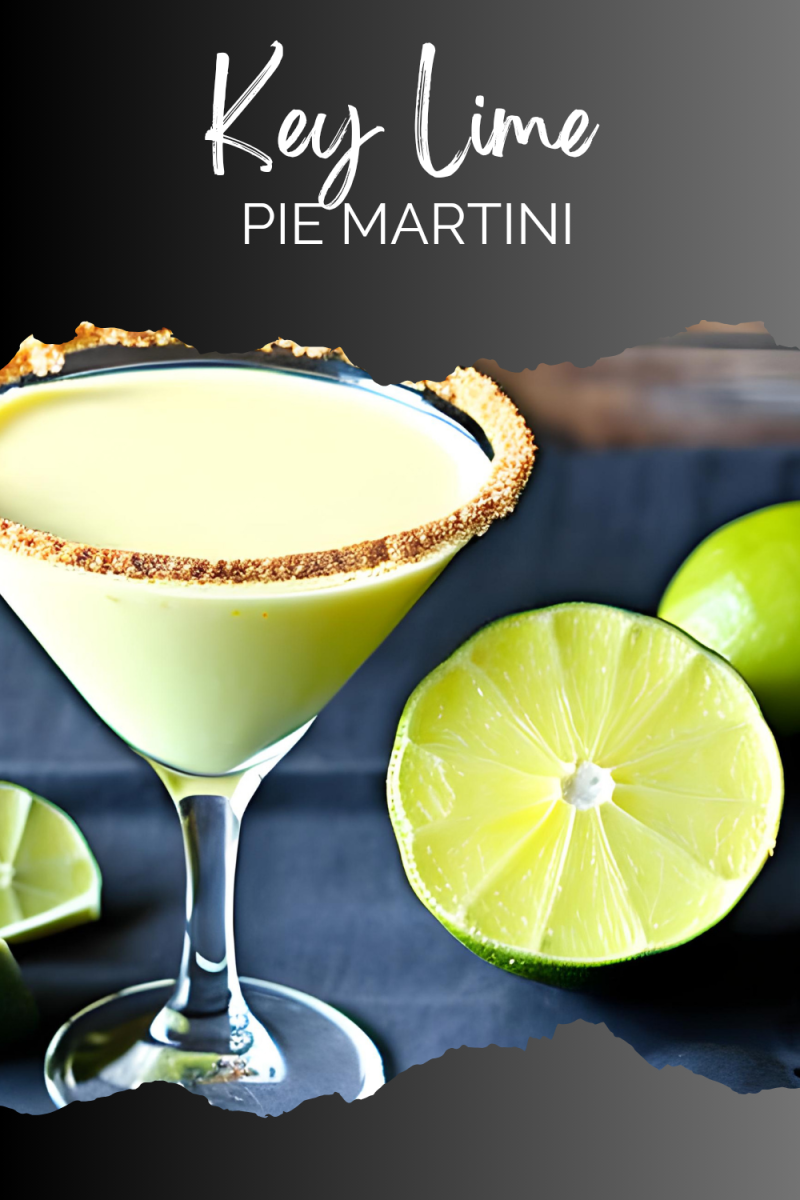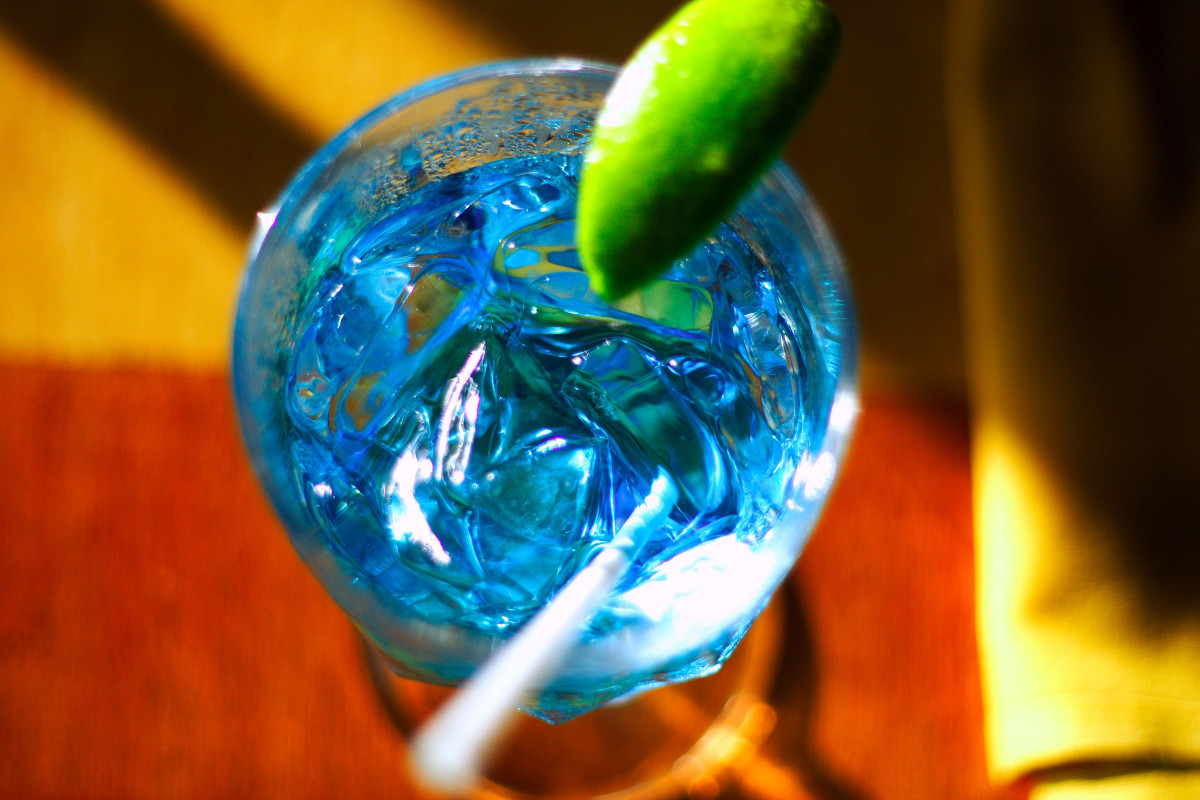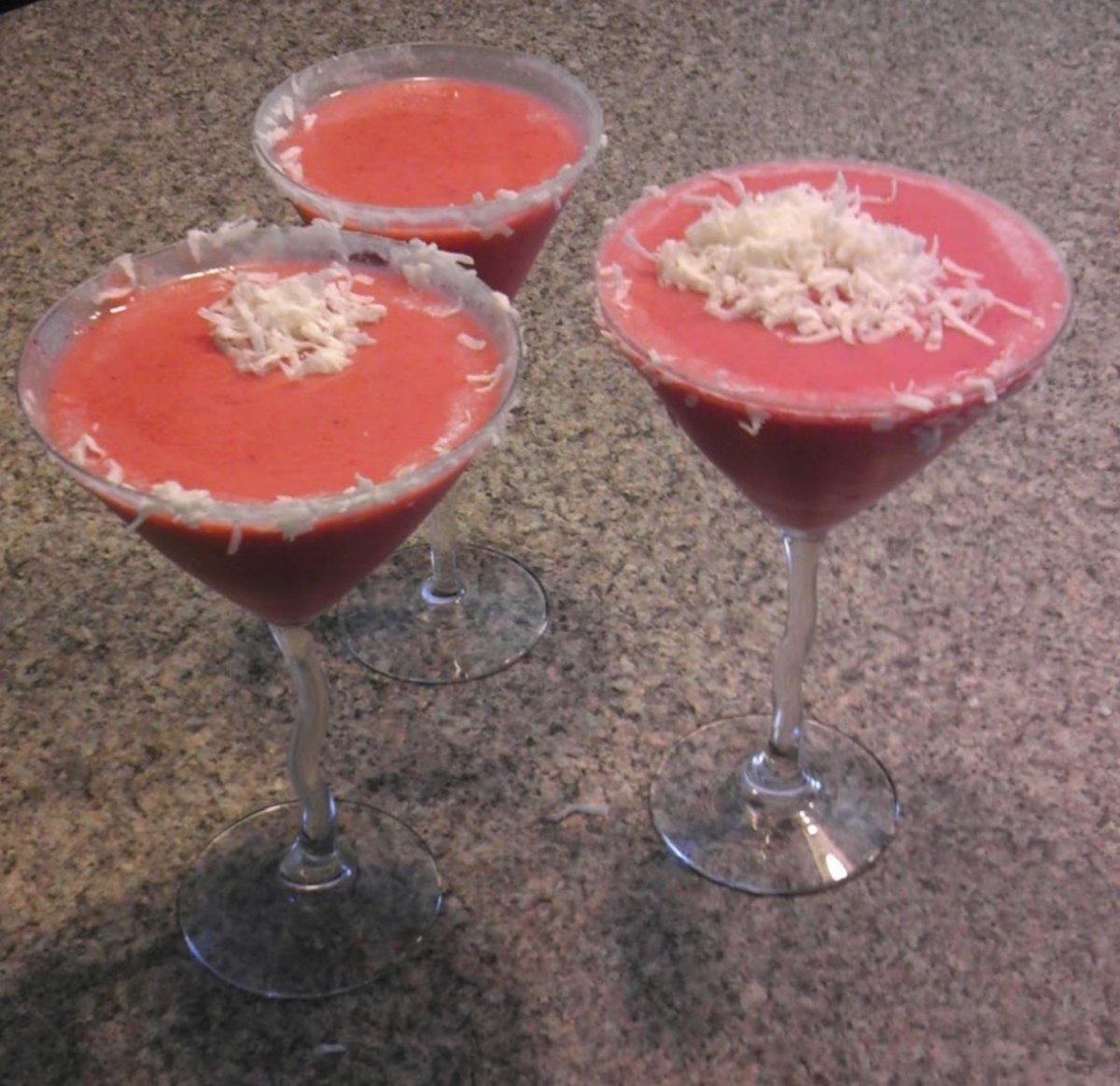Tennessee Whisky -- What the Heck is Tennessee Whiskey?
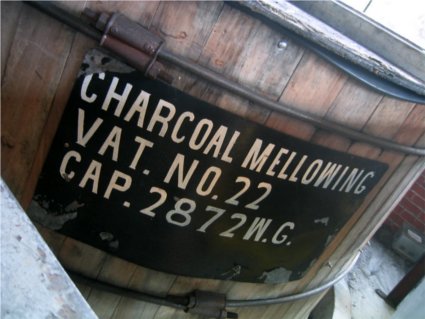
If you imbibe in the spirits on occasion chances are you have had the opportunity to sample some Tennessee whiskey. You might even spell it Tennessee whisky depending on what part of the world you're from; either is correct. I'm from Tennessee and we call it whiskey, but whatever you call it or how you spell it, you might have drank it. But, what do you know about it? Did you know that people argue about whether it is bourbon or not. It sometimes shows up on liquor lists under the bourbon heading, so is it really? You might also be surprised to learn that there are actual laws governing what can legally be called bourbon. In other words all bourbons are whiskies, but not all whisky is bourbon. And Tennessee whisky? Well it's a special case, and a pretty specific process takes it from bourbon to something good enough to be called Tennessee whiskey
Tennessee Whisky is Charcoal Mellowed
You see, in order to make bourbon, and legally be able to call it as such US law Title 27; Chapter I; Part 5; Subpart C; Sec. 5.22 "The standards of identity" must be followed. In that specific law is the following:
(1)(i) ``Bourbon whisky'', ``rye whisky'', ``wheat whisky'', ``malt
whisky'', or ``rye malt whisky'' is whisky produced at not exceeding
160 deg. proof from a fermented mash of not less than 51 percent corn,
rye, wheat, malted barley, or malted rye grain, respectively, and stored
at not more than 125 deg. proof in charred new oak containers; and also
includes mixtures of such whiskies of the same type.
This process that separates the ordinary from the specialty of only two distilleries in the entire state is called the Lincoln County Process. Bourbon is essentially the starting point for Tennessee whiskey, but before it is put into those new charred oak barrels (fascinating process to watch them made) the Lincoln County Process is a filtration method that removes many of what are called cogeners. These are certain impurities that are also flavors in the original distilled spirit, but many people agree that they are also part of what makes for worse hangovers. You can still get a hangover from Tennessee whisky, or any alcohol for that matter, but it may be a little less severe without these cogeners. Of course the aging in an oaken barrel reintroduces things back into the whiskey, so who can say for sure?
So, the Lincoln County Process uses a very specific charcoal made from the wood of the sugar maple tree. These trees grow in abundance in the area, and since the sugar maple is one of the fastest growing trees in the area there is always a supply of new wood available. The Jack Daniel's Distillery in Lynchburg, TN makes this charcoal on site from one-inch sticks of the wood called Ricks that are piled into large stack. This is then set aflame using some 160 proof Jack Daniel's and burned in the open air while the fire is controlled with sprays from a water hose during the roughly two hour burn. What is left over afterward is a pure charcoal that is ground up into pea-sized pieces and packed into ten-foot tall vats. The distilled spirit, which most people are surprised to learn is clear; not amber-colored after distillation, is then trickled slowly into the vats where eventually it drips from the bottom. This is thought of as a mellowing process, and once complete it ready to be put into the barrels.
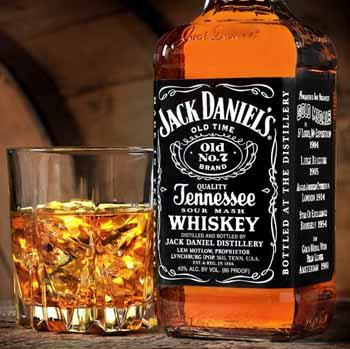
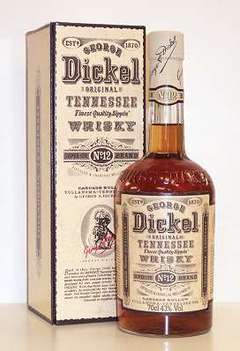
After being put into the specially-made oak barrels, the whiskey is
allowed to age for several years. The Jack Daniel's Distillery uses
five hundred of the barrels per week, and they are only used once. Yes,
once. Please refer back to the part of the law pertaining to bourbon
that requires the whisky to be stored in charred new oak
containers. The distillery says that once used, they are normally sold
to Scotch producers for their aging processes. UK law also specifies
what can be called Scotch, but it apparently doesn't call for new
barrels. This is not a bad thing, but consider next time you are
sipping on that Glenfiddich, perhaps it has some Tennessee whisky as
part of its DNA.
There are only two distilleries that make Tennessee whiskey. One of
them, the Jack Daniel's Distillery and the other is George A. Dickel
& Co. The Dickel Distillery is located a little further to the
northeast of Lynchburg in Tullahoma, and it's interesting to note that
the redrawing of county lines at some point caused neither distillery
to be located in Lincoln County any longer. The state law, up until
last year (2009), only allowed the production of distilled spirits in
three counties, but now that has been expanded to include fourty-four
counties.
The Dickel Distillery uses the Lincoln County Process, of course, but
with a couple of distinct differences. First they chill the whiskey
before putting it into the charcoal, and they let it fill the vat
entirely instead of just trickling through like the guys from
Lynchburg. The Dickel fellows claim that their Tennessee Whisky is as
smooth as it gets due to their specific processes.
Drink Recipes
I'm not sure, myself, but what kind of hub about booze would be complete without some recipes?
Here's the first one:
Take a tall glass
Fill with ice
Add one part Tennessee whisky
Add three parts Coke
Drink
Okay, here's another:
Boil water
Take a heavy coffee mug
Add one part Tennessee Whiskey
Add one spoonful of honey
Add a healthy squeeze of fresh lemon juice
Fill mug with boiling water
Stir with a cinnamon stick (optional)
Drink
That last is called a Hot Toddy or a Tennessee Toddy if you're in TN.
Does anyone else in other parts of the world drink hot toddys? If so,
let me know in the comments as I am curious. Well, that's all, folks.
Have fun and drink responsibly, ya'll!

